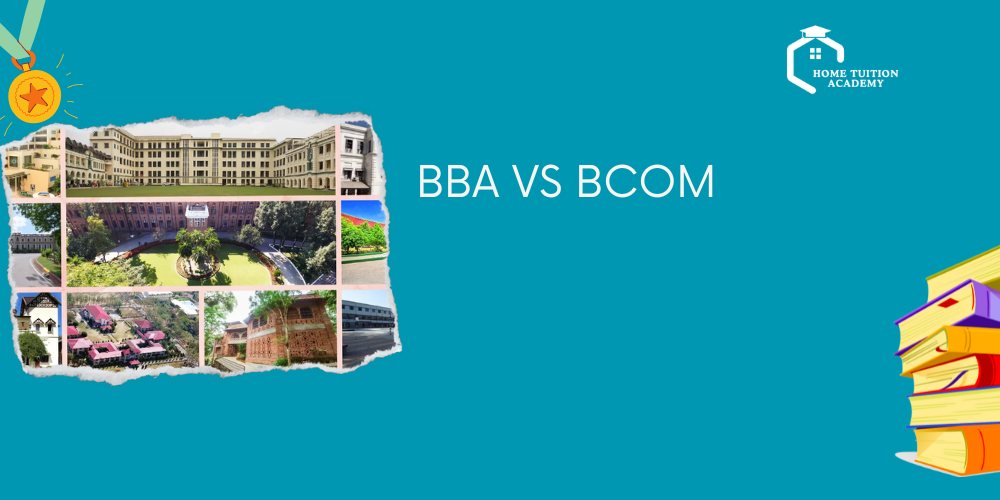Bachelor of Business Administration (BBA)
Introduction
The Bachelor of Business Administration (BBA) is a highly sought-after undergraduate program designed to develop business acumen, leadership qualities, and managerial skills. The course introduces students to the fundamentals of business operations, preparing them for various roles in the corporate world or entrepreneurial ventures. It is a three year course, two semesters each year.
Course Structure and Subjects
The BBA curriculum is designed to cover various aspects of business and management. Core subjects include Business Economics, Financial Accounting, Business Law, Marketing Management, Human Resource Management, Organizational Behavior, Strategic Management, Operations Management, and Entrepreneurship Development.
Students can choose from a wide range of electives such as Digital Marketing, International Business, Supply Chain Management, Retail Management, and E-commerce, allowing them to specialize in areas of interest.
Practical training through internships, case studies, and projects is an integral part of the course, providing students with real-world experience.
Skills Gained
BBA graduates develop essential skills such as strategic thinking, leadership, communication, analytical reasoning, and decision-making, which are crucial for managerial positions and business operations. This makes the students ready for the challenges in the industry.
Career Opportunities
A BBA degree opens doors to various industries, including finance, marketing, human resources, and operations. Common job roles include:
- Marketing Executive – ₹3-6 LPA
- Business Development Executive – ₹4-7 LPA
- Financial Analyst – ₹5-8 LPA
- HR Executive – ₹3.5-6 LPA
- Operations Manager – ₹6-10 LPA
For those with an entrepreneurial spirit, BBA provides the foundation to start and manage their own business ventures.
Higher Studies and Salary Potential
Many BBA graduates pursue an MBA (Master of Business Administration) to further enhance their career prospects. With an MBA, salaries can range from ₹8-20 LPA or higher, depending on the specialization and industry. Some good colleges also got packages more than 50 lakhs. Top recruiters include companies like Deloitte, KPMG, Accenture, TCS, HDFC, ICICI, and Infosys.
Recommended: Top 10 MBA Colleges in Delhi
Bachelor of Commerce (BCom)
Introduction
The Bachelor of Commerce (BCom) is a popular undergraduate course which focuses on financial and commercial studies. This three-year program is ideal for students aiming to build careers in finance, accounting, taxation, banking, and business law. BCom serves as a foundation for professional courses like CA (Chartered Accountancy), CS (Company Secretary), and CFA (Chartered Financial Analyst).
Course Structure and Subjects
BCom covers a comprehensive range of subjects including Financial Accounting, Corporate Accounting, Business Statistics, Taxation, Business Law, Economics, Auditing, and Cost Accounting.
Students can choose electives such as Investment Banking, E-Commerce, Banking & Insurance, and Risk Management to specialize in their preferred domain.
Many universities offer internships, industry projects, and workshops as part of the curriculum, ensuring that students gain practical exposure along with theoretical knowledge.
Skills Gained
BCom students develop skills like analytical thinking, financial management, problem-solving, numerical ability, and attention to detail, making them well-suited for careers in finance and commerce. This makes the student ready for finance jobs where they learn about the finances of the company.
Career Opportunities
If you are a BCom graduate, you can pursue careers in finance, accounting, banking, taxation, and auditing. Some of the key job positions include:
- Accountant – ₹3-6 LPA
- Financial Analyst – ₹4-7 LPA
- Banking Executive – ₹3-5 LPA
- Tax Consultant – ₹4-7 LPA
- Investment Banker – ₹10-20 LPA
- Chartered Accountant (if pursued further) – ₹8-30 LPA
Top recruiters include EY, PwC, Deloitte, KPMG, ICICI, HDFC, SBI, and Kotak Mahindra Bank.
Higher Studies and Salary Potential
Many BCom graduates opt for higher studies such as MCom, MBA, CA, CS, CMA, or CFA to specialize further and enhance their career opportunities. With these qualifications, salaries can range from ₹8-30 LPA depending on the industry and experience level.
BBA vs. BCom – Which One to Choose?
- Choose BBA if you are interested in management, marketing, entrepreneurship, or corporate leadership. BBA is a more practical course with less theory. If you want to get a management job, go for it. It offers diverse career options and a pathway to an MBA.
- Choose BCom if you prefer finance, accounting, taxation, and banking-related careers. Bcom. is a theory course which includes a deep dive into numericals and finance. If you are good with numbers and want to pursue finance in future, then bcom. is best for you. It provides a strong foundation for professional courses like CA, CS, and CFA.
Both will land you in excellent colleges. Find your interest and dive into the best colleges in India!!
FAQ
1. What is the difference between BBA and BCom?
BBA focuses on business management, administration, and entrepreneurship, while BCom is centered around finance, accounting, taxation, and commerce-related subjects.
2. Which course has better career prospects: BBA or BCom?
Both courses offer excellent career prospects. BBA is ideal for those aiming for managerial roles or entrepreneurship, while BCom is better for careers in finance, accounting, banking, and taxation.
3. Can I pursue an MBA after BCom?
Yes, many students pursue an MBA after completing BCom, especially in finance, marketing, or business management, to enhance their career opportunities.
4. What are the eligibility criteria for BBA and BCom?
For both courses, candidates must have completed their 12th grade (10+2) from a recognized board with a minimum aggregate percentage (usually 50-60%).
5. What are the top colleges for BBA and BCom in India?
Some top colleges include NMIMS, Christ University, DU, Symbiosis, and St. Xavier’s for both BBA and BCom courses.
6. What is the average salary after BBA and BCom?
The starting salary after BBA ranges from ₹3-8 LPA, while for BCom graduates, it ranges from ₹3-7 LPA. With further studies or experience, these figures can increase significantly.
7. Which is better for CA – BBA or BCom?
BCom is considered better for pursuing Chartered Accountancy (CA) as its curriculum aligns closely with the CA syllabus, including subjects like accounting, taxation, and auditing.
8. Can BBA graduates work in the finance sector?
Yes, BBA graduates can work in the finance sector as financial analysts, investment bankers, or financial planners, especially if they pursue relevant certifications or an MBA in finance.
9. What are the main skills developed in BBA and BCom?
- BBA: Leadership, strategic thinking, communication, problem-solving, and business management.
- BCom: Analytical thinking, financial management, accounting, taxation, and numerical skills.
10. Which course is more challenging – BBA or BCom?
Both have their challenges. BBA involves more practical learning, projects, and presentations, while BCom is more theory-based with a focus on accounting, finance, and commerce concepts.





